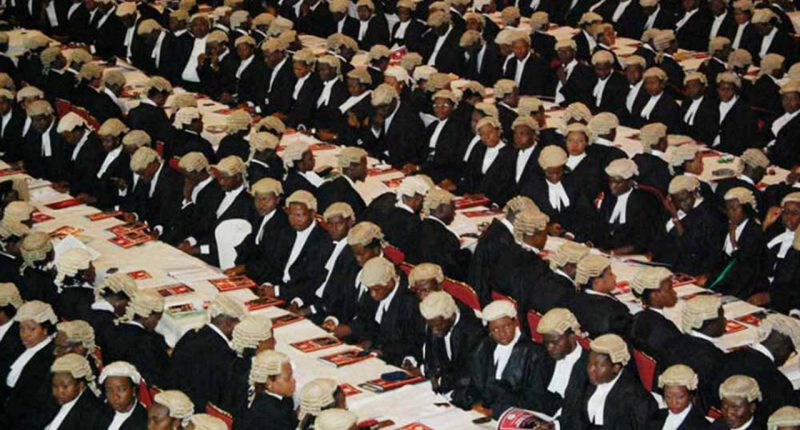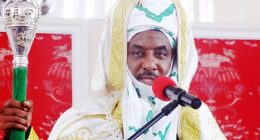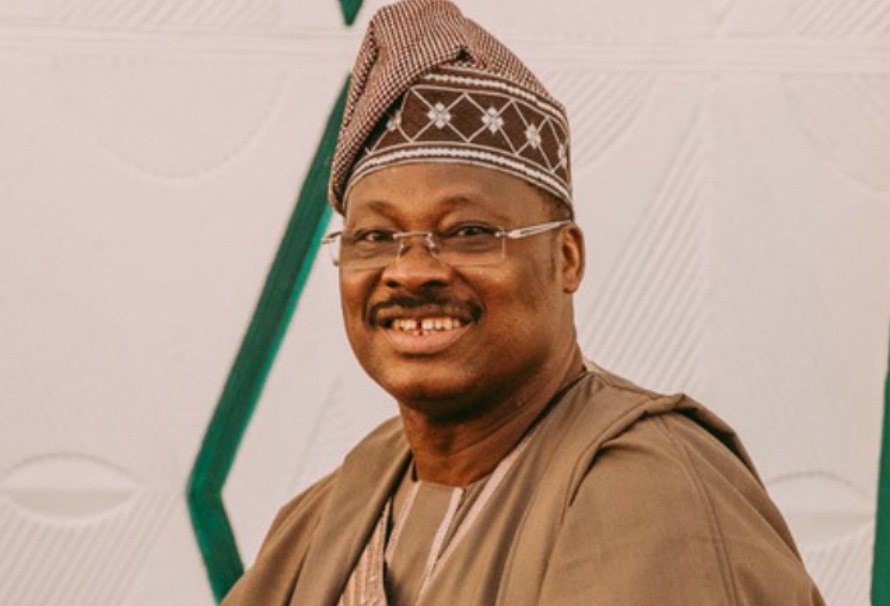In this post, we will share the list of the top lawyers in Nigeria that have shaped or made their mark in the legal service industry over the years. The lawyers in this list are both the present and from the past. One thing they all have in common is that they have all earned their respect in the legal service industry.
In no particular order, here are the top lawyers in Nigeria that have shaped the legal service industry over the years in Nigeria
Check here to see some lawyers that changed the course of human history
Top lawyers in Nigeria
1. Bola Ige
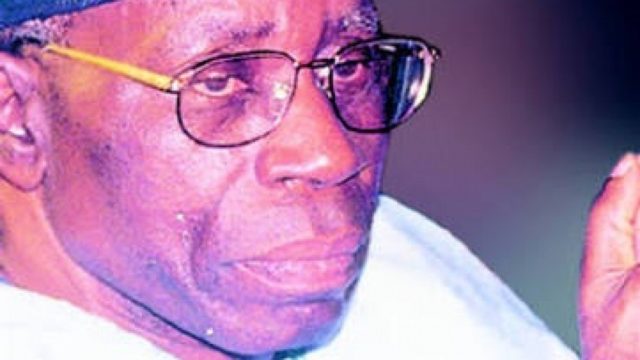
Chief James Ajibola Idowu Ige, SAN (Yoruba: Bọ́lá Ìgè; 13 September 1930 – 23 December 2001), simply known as Bola Ige, was a Nigerian lawyer and politician. He also served as Federal Minister of Justice for Nigeria. He was murdered in December 2001.
He became well known in the country for his oratory prowess, as well as his advocacy work on civil rights and democracy.
In the early 1970s, during the first period of military rule, he devoted his time to the anti-racism campaign of the World Council of Churches.
Towards the end of the 1970s he joined the Unity Party of Nigeria (UPN), the successor to the Action Group. When General Olusegun Obasanjo initiated the Second Republic, he was elected as governor of Oyo State from October 1979 to October 1983.
Following the restoration of democracy in 1999, Bola Ige sought the nomination of the Alliance for Democracy party as a presidential candidate, but was rejected. President Obasanjo appointed Bola Ige as minister of Mines and Power (1999–2000). He was not able to make significant improvements to service provided by the monopoly National Electric Power Authority (NEPA).
He then became Minister of Justice and Attorney General of the Federal Republic of Nigeria (2000–2001). In September 2001 Bola Ige said that the Federal government had initiated a program to re-arrange and consolidate the laws of the Federation, publish them in digital form, and make them available on the website of his ministry.
He campaigned ardently against the imposition of the Sharia law in the northern states of Nigeria. In November 2001 he said that the Federal government would not allow the Sokoto State government to execute the judgement of a verdict passed by a Gwadabawa sharia court to stone a woman, Safiya Hussaini to death for committing adultery.
On 23 December 2001, Bola Ige was shot dead at his home in the south-western city of Ibadan.
2. Adeyemo Alakija
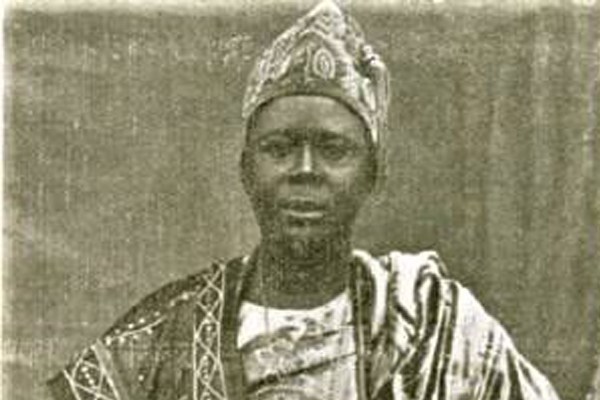
Oloye Sir Adeyemo Alakija, KBE (25 May 1884 – 10 May 1952) was a Nigerian lawyer, politician and businessman. He served as a member of the Nigerian legislative council for nine years starting in 1933. In 1942, he became a member of the governor’s Executive Council. Alakija was president of Egbe Omo Oduduwa from 1948 until his death in 1952.
Sir Adeyemo Alakija was a newspaper entrepreneur who co-founded the Daily Times of Nigeria with Ernest Ikoli and Richard Barrow, who was the president of the Lagos Chamber of Commerce. The newspaper flourished with the support of advertising revenue from expatriate companies and despite its pro-government stance. Alakija assumed the chairmanship of the paper’s publishing arm, the Nigerian Printing and Publishing Company. He was also a member of the governor’s executive council and was president of the Nigerian Youth Movement.
In Nigeria, he embraced some traditional elements of Yoruba socio-political and religious history when he co-founded the reformed Ogboni society and became the Olori Oluwo, or “Grandmaster”, of the brotherhood. As a member of the Ogboni confraternity, he introduced the use of masonic symbols inside the organization, such as the unblinking eye on an inverted V and three vertical shapes.
Alakija was influential in the development of Egbe Omo Oduduwa and later the Action Group and was donor to both organizations.
Alakija died in the early hours of May 10, 1952. The night before, he had attended a dinner hosted by Sir Mobolaji Bank Anthony.
3. Bode Thomas

Chief Bode Thomas (October 1919–November 23, 1953) was a Nigerian lawyer, politician, statesman and traditional aristocrat. A Yoruba tribesman, Thomas served with distinction as both a colonial minister of the Colony and Protectorate of Nigeria and a nobleman and privy counsellor of the historic Oyo clan of Yorubaland at a time when his native country was just beginning the journey to its independence in the 1960s. He was Nigeria’s first Minister of Transportation.
In 1946, he became the legal adviser of Egbe Omo Oduduwa and was one of the founding members of the Action Group. Prior to joining Action Group, he was a successful Lagos lawyer and was a member of the Nigerian Youth Movement.
He is credited as the first prominent Nigerian political elite during the colonial era to make strong interpretation for regional-based political parties, which, he believed the parties will be equipped with the necessary knowledge to develop their regions and also forming a coalition at the center.
He was also a leading advocate for the bringing of tribal chiefs and kings into the expanding fold of the Action Group.
On November 22, after returning from Oyo, Thomas became ill at his Yaba, Lagos home, he was later taken to Ijebu-Igbo for further treatment. He died in Ijebu-Igbo on November 23, 1953
4. Frederick Rotimi Williams
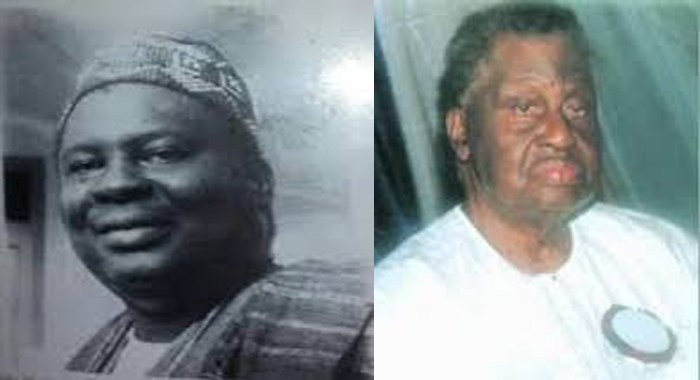
Chief Frederick Rotimi Alade Williams, QC, SAN (16 December 1920 – 26 March 2005) was a prominent Nigerian lawyer who was the first Nigerian to become a Senior Advocate of Nigeria. In the 1950s, he was a member of the Action Group and subsequently became the minister for local government and Justice.
He was the president of the Nigerian Bar Association in 1959, the association is the leading body for lawyers in the country. He left politics in the 1960s, as a result of the political crisis in the Western Region of Nigeria.
In 1943, he became the first Nigerian solicitor to the Supreme Court of Nigeria and soon thereafter entered the political arena as a member of the Nigerian Youth Movement. He rose to become the movement’s general secretary. However, the movement was soon embroiled in a crisis which dented its political support among the Nigerian masses.
When the movement began to fade politically, he was one of the educated members of the Nigerian political class who joined the Action Group.
In 18 October 1975, Rotimi Williams became the chairman of the Constitutional Drafting Committee. The body was formed to present a draft constitution to be approved by the military administration of Obasanjo. He led the convention to present an agenda for broad coalition building across ethnic and regional lines.
The body pushed for presidential winners to have at least 25% of the total votes cast in two thirds of the nineteen states in Nigeria and that each of the 19 states of the federation should have a minister representing them. The political parties should also have support in at least two thirds of the states.
5. Femi Fani-Kayode

David Oluwafemi Adewunmi Abdulateef Fani-Kayode is a Nigerian politician, essayist, poet and lawyer. He was a member of the ruling Peoples Democratic Party (PDP).
He was with the opposition’s All Progressive Congress (APC) until June 2014 when he returned to the ruling Peoples Democratic Party. Although his family lineage originates from Osun, he was born in Lagos, on 16 October 1960 to Chief Victor Babaremilekun Adetokunboh Fani-Kayode and to Chief (Mrs) Adia Adunni Fani-Kayode. He is an Ile-Ife chieftain of Yoruba descent.
Fani-Kayode was the Special Assistant (Public Affairs) to President Olusegun Obasanjo from July 2003 until June 2006. He was appointed the Minister of Culture and Tourism of the Federal Republic of Nigeria from 22 June to 7 November 2006 and as the Minister of Aviation from 7 November 2006 to 29 May 2007.
Femi Fani-Kayode was a member of the Nigerian National Congress (NNC) in 1989. He was elected the national youth leader of NNC that same year. In 1990, he was appointed as Chief Press Secretary to Chief Tom Ikimi, the first national chairman of the National Republican Convention (NRC) and in 1991 as Special Assistant to Alhaji Umaru Shinkafi, former head of the Nigerian Security Organisation (NSO).
Femi Fani-Kayode was investigated and arrested by the Economic and Financial Crimes Commission (EFCC) in July 2008 in connection with the alleged misappropriation of a 19.5 billion naira (approx.US$300,000,000) “Aviation Intervention Fund.” The investigation found no evidence against him.
The Senate Committee on Aviation in early 2008, initially recommended that Fani-Kayode be banned from holding public office for five years but withdrew the request when he had not violated any law.
He was discharged and acquitted on 1 July by a Federal High Court sitting in Lagos on the two count charge of money laundering preferred against him by the Economic and Financial Crimes Commission, EFCC. The court held that the EFCC was unable to prove the charges against Fani-Kayode beyond reasonable doubt and consequently acquitted him.
In November 2009, before Yar’Adua fell ill, Fani-Kayode wrote a poem titled “I Stand and I Fight”. In this poem, he described Yar’Adua as a “sickly tyrant with an amalekite foundation” and he predicted that “his end would soon come”. Fani-Kayode wrote other poems over the last few years.
6. Femi Gbajabiamila
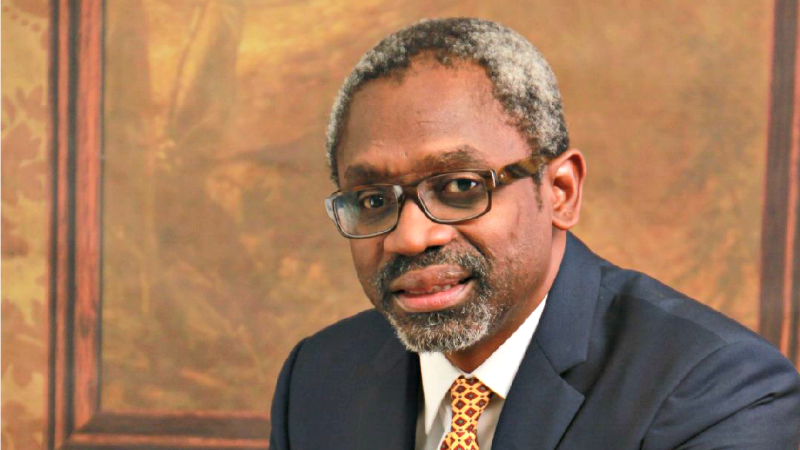
Femi Gbajabiamila (born June 25, 1962a) is one of the top lawyers in Nigeria. He is an All Progressives Congress Leader, and House Leader of Nigeria’s 8th House of Representatives.
He attended John Marshall Law School in Atlanta Georgia where he graduated top of his class earning himself a Juris Doctorate. After passing his Georgia bar exams in 2001 he set up a law firm in Atlanta Georgia where he practiced law until his return to Nigeria.
Gbajabiamila had always been actively involved in politics, even in the United States where he actively participated in the election of Bill Campbell who later went on to become Mayor of the city of Atlanta.
It was therefore not surprising that on his return to Nigeria Gbajabiamila situated himself in the political affairs of his constituents and recognized that they would be better served if he had a chance to represent them at the House of Representatives. This informed his decision to delve into partisan politics and offer himself up for service on the platform of the then Alliance for Democracy (AD).
After a rigorous and highly competitive campaign, Gbajabiamila succeeded in ousting the incumbent member of the House of Representatives from Surulere constituency 1, and clinched his party’s nomination for the seat. His party leaders recognized his true commitment to party ideals and worked with him to emerge victorious at the general elections. H
is first term in the House demonstrated his true passion for issues concerning his constituents and Nigeria as a whole, he worked passionately to address matters of great concern to him and quickly earned a reputation as a true and brilliant legislator.
7. Bayo Ojo

Christopher Adebayo Ojo, SAN is a former Attorney General of the Federal Republic of Nigeria. As such, he is also a past head of the Nigerian Federal Ministry of Justice. He is a legal practitioner and is licensed to practice in Nigeria, England and Wales. He is a Senior Advocate of Nigeria.
Ojo was called to the Nigerian Bar in July 1978. He had his first solo court appearance as defense counsel in a rape case before Hon. Justice Anthony Iguh of the High Court of Justice, Enugu, in 1978. The case was a legal aid brief and Ojo lost it because of the overwhelming evidence against his client. He was then a member of the National Youth Service Corps.
He worked at the Ministry of Justice, Kwara State, as a state counsel for four years. During this period, he obtained a certificate in Legal Drafting from Royal Institute of Public Administration, London in September, 1981.
Thereafter, he proceeded to the London School of Economics and Political Science, University of London, to obtain LLM in September 1982.
In March 1983, he opted out of government service to join the firm of Oniyangi & Co as head of chambers. In 1986, he founded the law firm of Bayo Ojo & Co.
He was elected President of the Nigeria Bar Association (NBA) in 2004. Subsequently, he was appointed Attorney General and Minister of Justice by President Olusegun Obasanjo.
During his term as Attorney-General, he regularly appeared in court personally to argue cases on behalf of the government. Previous attorneys-general had mostly preferred to engage lawyers in private practice to appear for the government.
He was noted for his brilliant efforts in decongesting Nigerian prisons by engaging lawyers in private practice to defend various individuals who were being held by the state without trial. He also had a limited measure of success in advocating for an improvement in the welfare of younger lawyers.
As of 2007, he is a member of the United Nations International Law Commission. He remains a close associate of Nasir EL-Rufai and Nuhu Ribadu.
There you have it, our list of top lawyers in Nigeria, If you think we are missing anyone on this list, please share your thoughts on the comment section below.
